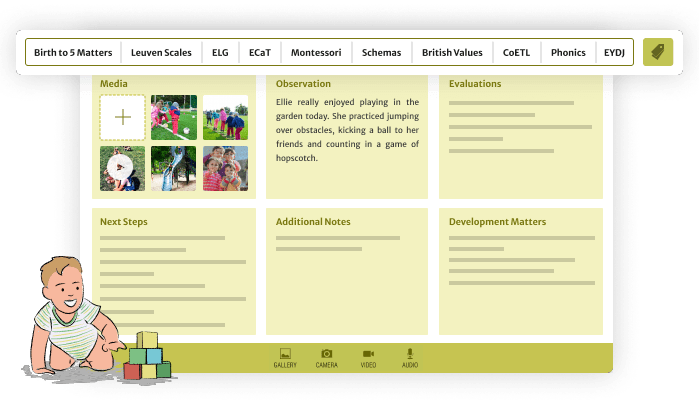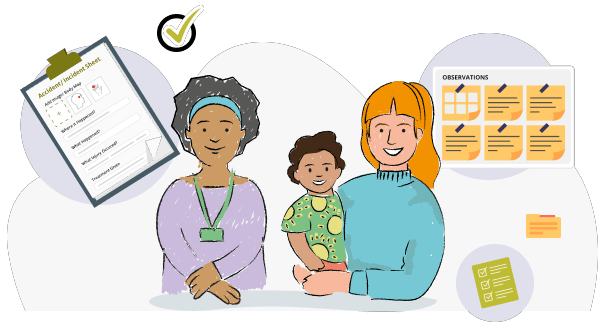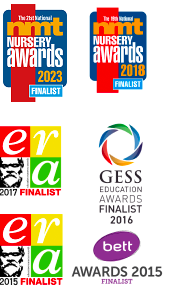Assessment, a crucial component of Early Years education, plays a pivotal role in understanding and supporting a child’s development during their formative years. It provides educators with valuable insights into a child’s progress, strengths, and areas that need further attention.
Assessing children’s development is a crucial part of working in an Early Years setting. It is inescapable too when watching little ones! Every new step, new word, or new discovery is potentially notable and it can be hard to decide which observations should be recorded formally and which do not need to be.
The concept of assessment can sometimes be daunting, raising questions about its purpose and the best practices to implement.
Understanding Assessment in the Early Years
Assessment in the Early Years refers to the ongoing process of observing, documenting, and analysing a child’s learning and development. It involves collecting evidence of a child’s experiences, interactions, and achievements, and using this information to tailor instruction and interventions that support each child’s unique growth trajectory.
It’s important to note that Early Years assessment isn’t solely about assigning labels but about gaining a comprehensive understanding of each child’s holistic development.
Types of Assessment
There are two main types of assessment in Early Years Education, formative and summative. Plymouth.gov.uk’s article on EYFS assessment principles and practice briefly explains the different types. We have included excerpts from the article below:
Formative assessment
“Formative assessment is central to effective early years practice and is ongoing. It involves practitioners observing as they play and interact with children which contributes to a practitioner’s knowledge of a child.”
“Formative assessment is used to understand how a child is learning and developing. It informs planning so that adults can meet children’s needs and support and extend the learning of all children.”
Summative assessment
“At points in time settings may find it useful to pull together insights from formative assessment and information about the child from listening to the child, parents/carers, other professionals and colleagues. This is known as summative assessment.
Summative assessment provides a holistic summary of a child’s progress, strengths, needs, interests, how the child learns and how the child is supported. This should not be a time- consuming process and should provide a clear overview to parents and other professionals.
Summative assessment can inform improvements to provision and practice which enhance children’s development and learning.”

The Importance of Assessments
Assessments hold significant importance within an Early Years setting and can impact other aspects of Early Years Education. Let’s explore some of these:
Early Intervention
Early years assessment allows educators to identify any developmental delays, challenges, or special needs a child might have. With early intervention, appropriate support can be provided to address these issues before they become more significant obstacles to learning and development.
Curriculum Planning
Assessment information aids in designing effective curricula and educational activities that align with the developmental stages and interests of the children. This ensures a more engaging and relevant learning experience.
Communication with Parents
Assessment provides a structured means for educators to communicate with parents about their child’s progress, achievements, and areas for improvement. This partnership fosters a collaborative approach to supporting the child’s development.

What will Ofsted look for during inspections?
The following excerpt has been taken from the UK Government’s guidance for people who work in Early Years:
“Ofsted know that children learn best from high-quality interactions with adults. Ofsted do not want the assessment of young children to take you away from this important work. Rather than looking at information about children, inspectors will want to discuss the progress that children are making with you. Inspectors will want to discuss:
- what the children could do when they arrived
- what they are working on now
- what you want them to learn or be able to do by the time they leave
Inspectors will not expect this information to be recorded in any particular way. You can choose to record it in the way that works best for you. For example, a small setting may know their children so well that they can provide a verbal account of children’s current learning and progress. A larger setting might decide to keep records if they wish.”
Oddly enough, this advice comes from the section on Reducing paperwork.
It is important to note that not all activities and assessments within Early Years settings are solely for the purpose of meeting Ofsted’s requirements. However, having an assessment strategy will make it easier for your setting.
Strategies for Undertaking Assessments
There are several strategies that help build up an Early Years assessment. Here are some of the key ones:
Observation
Regular observation of children during play and activities offers valuable insights into their interests, social interactions, and problem-solving abilities.
Observations should be documented through notes, photographs, and videos to create a comprehensive picture of the child’s progress.
Learning Journeys
Learning Journeys are a collection of a child’s work, observations, and achievements over time. They serve as a visual representation of the child’s growth and development, allowing educators and parents to track progress and identify patterns.
Developmental Checklists
These standardised checklists outline developmental milestones and age-appropriate behaviours. They help educators identify any potential areas of concern and ensure that a child is on track with their peers.
Anecdotal Records
Anecdotal records, also known as ‘wow moments’, involve jotting down specific incidents, conversations, or interactions that highlight a child’s skills, challenges, and growth. These records provide rich context for assessing a child’s development.
Striking the Right Balance
While assessment is essential, finding the right balance is key. It’s important to ensure that assessment practices are developmentally appropriate and align with the principles of play-based learning. A child’s growth should not be reduced to mere data points; rather, assessments should reflect the holistic nature of their development.
In a busy setting with multiple staff, formal recording and evidencing becomes essential. Even if a child has a consistent key worker every day, it is important to maintain accurate records in the event the key worker is absent and other staff members need to find out something about a particular child.
Parents also expect a certain amount of information: “Did my child eat all of their lunch?” “Have they been on the potty today?” “Did they have a nap?” For all of these questions and more, Early Years staff cannot rely on just their memory, particularly if lots of parents are picking up their child at the same time! This makes recording information important – whether Ofsted wants to see it or not.
But how can staff avoid paperwork taking over from the most important elements of Early Years Education? Research suggests that spending time with adults is the most effective way for children to achieve developmental milestones. Therefore, it is essential to strike a balance between administrative tasks and providing individual attention to children. This is one of the reasons we have developed eylog, observation and assessment software, so that practitioners can record milestones and important parts of the day really quickly without adding to their admin time away from the nursery room (most childcare practitioners did not go into the job to spend time in an office!).
It is certainly not the quantity of recording which is important – it is the quality of those recordings. And with eylog in hand, it is easy to take a quick photo or video to really show what is happening without trying to explain it via multiple post-it notes!
Tagging quickly into your chosen curriculum makes it even more powerful and cuts down admin later too, as it is easy for any staff to quickly look at an individual child, see where they are at, and plan appropriate activities for them. This formative assessment – where it is used to inform our practice on a day-to-day basis – is what becomes really powerful.

Ofsted has already explained they do not need to see all of this recording. But having these available to staff makes those conversations easier as everyone can easily see how each child, and group of children, is doing. They will know not just what they have done and all of the achievements on the way so far, but also see where they are heading and be able to tie that into the forward planning being done.
Technology is not the answer to everything of course – but for oversight of formative assessment, it can certainly take the strain from the memory of busy childcare practitioners and leave them to focus on the child rather than the pile of paper!
Overall, assessment in early years education is a powerful tool that empowers educators to nurture each child’s potential. When implemented thoughtfully and with a focus on individuality, assessment can provide valuable insights that guide learning, encourage parental involvement, and promote early intervention.
By striking the right balance between formal and informal assessment methods, educators can create a supportive and engaging learning environment where every child can flourish.
Find out how eylog can empower your team and easily capture every child’s story.

